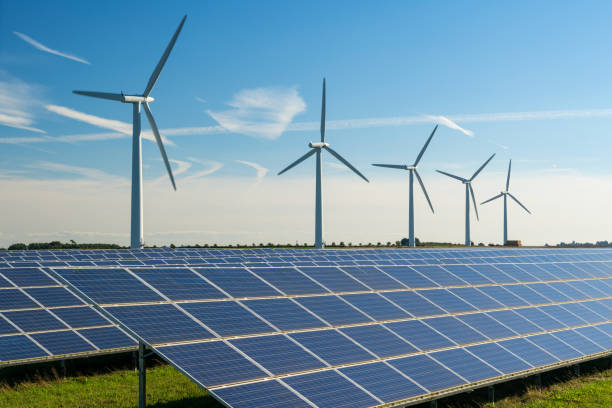Wind energy engineering is the process of designing wind farms. It refers to all aspects of the design process, including developing site specifications. A wind energy engineer is a scientist who designs wind farms or their components. Alternatively, he or she may supervise the manufacture of rotor blades or other components. Numerous different types of engineers play a part in wind energy systems.
What Is A Wind Energy Engineer
A wind energy engineer is anyone who harnesses the power of the wind to feed a power grid or different electrical power systems by designing wind farms, or their components. Alternatively, a wind energy engineer may additionally supervise the manufacture of rotor blades or other components.
Wind energy engineering entails the manner of designing wind farms, and refers to all factors of the sketch process. It involves developing website specifications, planning, manufacturing, and testing all hardware and electrical components, and even building roads and transporting components to set up sites. Many exceptional sorts of engineers play a function in wind electricity projects, such as aerospace, civil, mechanical, electrical, and environmental engineers, among others.
What Does A Wind Energy Engineer Do
Wind energy engineers produce wind energy collection systems that will use the natural power of moving air to produce electricity. They work on wind ranch installations, design ranch layouts, produce schematics, do analyses to optimize the designs and layouts of roads and transmission lines, and make recommendations to upgrade and streamline operations.
Some wind energy engineers only concentrate on tackling design turbines, rotor blades, electrical systems, and energy production systems. They dissect the aerodynamic parcels of new designs, run tests, and document test results. Some oversee the manufacturing and testing of factors and also estimate budget and scheduling conditions for manufacturing processes.
Wind energy engineers may also be involved in assessing issues of compliance with health and safety canons. They may be involved in issues with land use or other original laws in specific cosmopolitanism, which may give important guidance on how to make a specific wind energy system in a given position.
Engineers who are working on wind energy systems will frequently take on specific specialized and mechanical tasks related to certain rudiments of these systems. This includes structure or maintaining turbines for a specific scale, or provisioning a turbine or creator with specific accessories. Wind energy engineer professionals also frequently work on creating models or schematics for prototypes of wind power operations.

How To Become A Wind Energy Engineer
- Clear 10+2
To answer the question of how to become a wind energy engineer, students are required to complete 10 2 in physics, chemistry, math, or computer wisdom with an aggregate of 50 percent of marks from a recognized board.
- Entrance Examination
Several colleges and universities conduct entrance examinations to give admissions in separate programs. scholars are needed to prepare and appear in entrance examinations in order to make a career as wind energy engineers. Admissions are handed on the basis of the evaluation of scholars’ performance in the entrance examination. There are several other colleges that give admissions on the basis of the cut-off of 10 2 passing chances. We’ve mentioned below the popular entrance examinations for engineering.
- Pursuing A Bachelor’s Program
Scholars are needed to take admissions after successful completion of 10 2. We’ve mentioned below the popular bachelor’s degree programs for engineering.
- Post Bachelor
Scholars have several options after completion of a bachelor’s degree program to lead their careers as wind energy engineers. We’ve mentioned below the two major options to bring ease for you to conclude a more successful career with smaller hurdles.
Option 1 After completing a bachelor’s degree, candidates can enroll themselves in a master’s degree program in related specialization without any gap in academic time. Post master’s they can start working in the assistance in an entry-position position.
Option 2 After completion of a bachelor’s degree program the candidates can start working in the assistance in an entry-position position. After acquiring an experience of 1-2 years, they can conclude a master’s degree in the related specializations. After successful completion of the program, they can further start working in the assistance.
What Abilities Are Required To Become A Wind Energy Engineer
There are several types of energy engineers. But in order to have a good wind energy engineer pay, one must retain some chops. A candidate can either acquire these skills while pursuing any wind energy engineering courses or have them in them naturally.
- Communication Skills
Wind power engineers are required to communicate effectively in both written and verbal manner. They needed to hear each platoon member precisely and explain them verbally. They prepare reports including details of test results for attestation. In the career as a wind energy engineer, individuals are needed to understand written information and write as well.
- Problem Solving Ability
In the career as a wind energy engineer, individuals are needed to use logical logic to assay weaknesses and strengths of indispensable results. They’re needed to make information-grounded conclusions. They prognosticate the possible pitfalls and gains in a design. They identify the problems and recommend the stylish possible results.
- Mathematics Skills
In the career as a wind energy engineer, individuals are required to use mathematics skills for problem-working. They’ve to add, abate, divide or multiply constantly and directly on fritters. They’ve to apply scientific principles to solve problems.
- Project Management
Wind engineering careers involve managing multiple things at the same time. They’ve to ensure that work gets completed within the anticipated time and doesn’t exceed the deadlines. They’ve to supervise the work and ensure everything is performing duly without any specialized problems.
